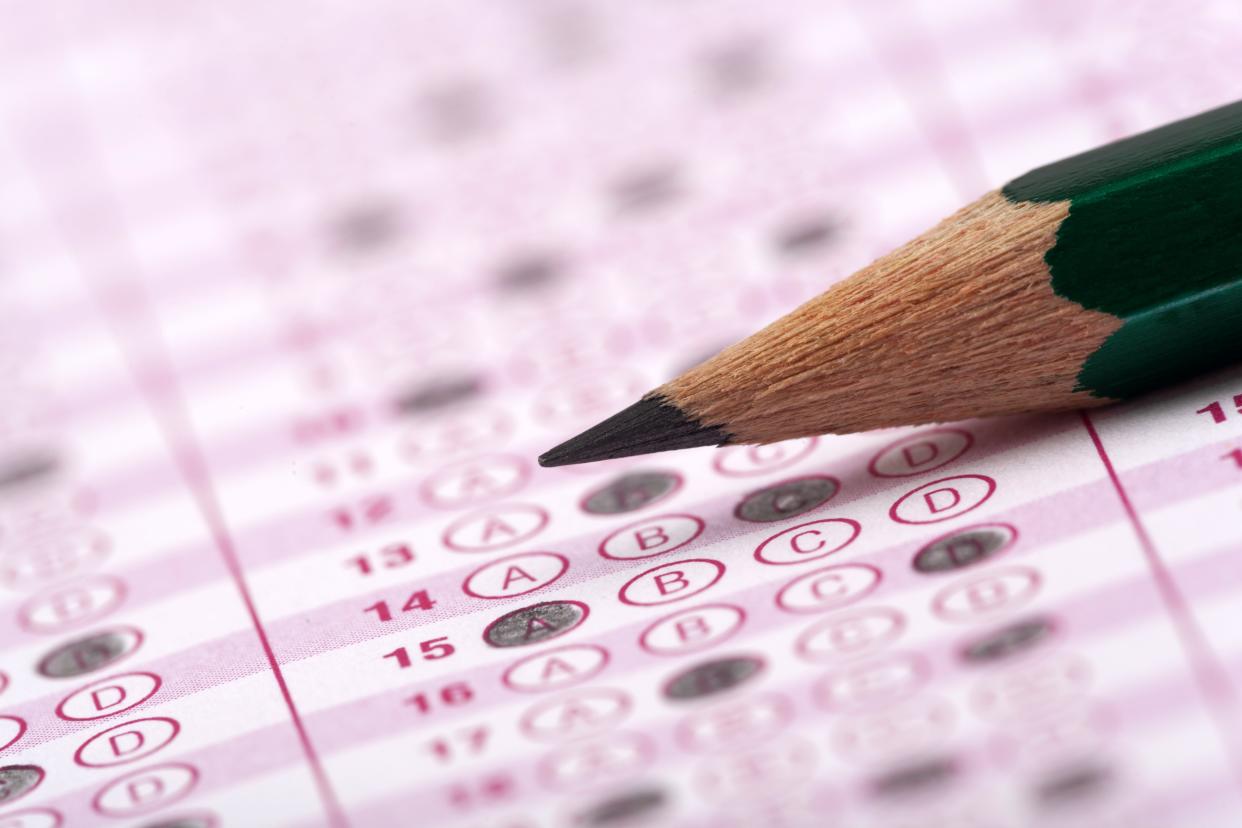Test-optional admissions extended at UW-Madison, other UW campuses

Freshman applicants to University of Wisconsin System schools can forgo standardized tests for another two years under a policy extension approved by the UW Board of Regents on Friday.
A longstanding policy required incoming freshmen to submit ACT or SAT scores, but the board suspended the requirement in 2020 when the pandemic severely restricted the number of testing sites available. The board has extended the temporary policy several times.
Here's what to know:
Test-optional admission in place at University of Wisconsin institutions through 2027
Test-optional advocates say eliminating the requirement evens the playing field for lower-income students, pointing to research that found test-optional schools saw increases in the number of minority, low-income and first-generation students applying.
Those in favor of testing requirements, including the organizations that make billions in administering the exams, say the exams are a good predictor of college readiness. State Republican lawmakers have also tended to support ACT/SAT mandates.
Test-optional admissions will now be in place through the 2026-27 school year.
Why is UW System extending test-optional policy?
The extension will simplify the admission process, increase college access and "reduce the risk to UW's reptuation," UW officials said in meeting materials.
Test-optional admissions is the default
UW officials planned to extend it through 2027-28 but decided on a two-year extension instead, in light of a limited number of schools recently reinstating testing requirements. But most schools have remained test-optional even as the pandemic faded.
More than 80% of higher education institutions are test optional, including 20 of 53 state systems, according to the UW System. Illinois and Iowa are already permanently test optional, while Michigan and Minnesota are largely test optional.
Even before the test-optional movement became mainstream, test scores were not a critical factor in the admissions process, with the exception of the state flagship university. Most UW campuses admit nearly 95% of applicants.
Effects of UW's test-optional policy being studied
Preliminary research on UW System's test-optional policy in the first year it took effect showed it led to more applications at UW-Madison but did not significantly diversify the applicant pool.
UW System said in 2022 that a final report would come this month. The report, however, has been delayed because of the temporary two-year extension. The additional time will allow researchers to more meaningfully analyze the policy's effects, including studying a full cohort of students who applied under the policy and graduated.
Research so far indicates first-year student GPA and test scores have remained consistent at UW campuses since 2018. Test scores are less reliable predictors of college completion than high school GPA and don't add meaningful academic information beyond what is already collected in the admissions process, according to meeting materials.
Contact Kelly Meyerhofer at kmeyerhofer@gannett.com or 414-223-5168. Follow her on X (Twitter) at @KellyMeyerhofer.
This article originally appeared on Milwaukee Journal Sentinel: University of Wisconsin extends test-optional policy through 2027
